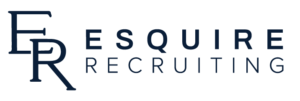Something that students are often not taught in school is how to ask for more. Between schoolwork, organization involvement, Greek Life, Band, Orchestra, exercise, and daily communication with friends and family… how could any student “ask for more”? However, today we’re here to introduce you to a concept of work that is easily overlooked: the importance of keeping a hefty workload and knowing when to increase it.
Asking for More!
- Gauging Comfort Level: It takes far more than one day, week, or even month to become completely acclimated to a new position, company, and culture. In fact, this could take a few months and often a year! It is crucial to understanding your capabilities to allow this time period to pass and to pay attention to your comfort level in your responsibilities. If you’re reading this and thinking about the fact that you haven’t had much “new” lately or pushed yourself out of your comfort zone, you may have reached the level of “comfort” we’re speaking to! This is a tell-tale sign that you’re ready…

- So.. what does this mean? Asking for more in your job does not necessarily mean asking for a promotion. It often implies inquiring for more responsibility, autonomy, or general projects and assignments. What I learned at my summer internship is that often managers are unaware of your free time! Being swept by their own responsibilities and meetings on a daily basis, it would be nearly impossible fo them to consistently evaluate your workload and ability. For that reason, you must be your own advocate! You may be able to do so over coffee, a quick 1:1 meeting, or a formal conversation with your supervisor or director. However you go about it, initiating a conversation with the goal of discussing your current responsibilities and expanded capabilities is the first step to success.
- Give Concrete Examples: Once you have your meeting set, start your preparation. Likely, your manager will be entering this meeting with a relatively accurate and current understanding of your performance and abilities. However, it is equally valuable to your conversation that you bring a list of mental examples to break down which projects have helped you to develop which skills and why those newfound skills will help you to be able to take on more work. Showcasing your personal initiative to doing better and more is a key component of portraying yourself as a valuable, long-term employee!
Business is an industry that allows for exponential growth. However, this does not come without expectations, and those are to hold your own and be aware of what you can and cannot handle! Through self-reflection, you’re bound to get there in no time.
Searching for a new position? Check out our open jobs list!
Click here to learn how to develop confidence in asking questions!


 Read the room for facial expressions, search back to prior notes, create an acronym sheet to avoid repetition, consult a mentor about the topic, or ask your manager after the meeting concludes!
Read the room for facial expressions, search back to prior notes, create an acronym sheet to avoid repetition, consult a mentor about the topic, or ask your manager after the meeting concludes! One of the easiest ways to fall “out of touch” with cultural or social movements and general shifts in social spheres is by becoming too comfortable with your current work. With the number of employee resource groups growing at a rapid pace, we highly encourage you to join one! Most of these organizations are relatively low-involvement, and provide an exceptional route to expanding your understanding of different topics, people, and backgrounds. Especially in learning about groups that you may not “fit into” (ie: a women’s org. if you are a male) you will achieve your greatest personal growth.
One of the easiest ways to fall “out of touch” with cultural or social movements and general shifts in social spheres is by becoming too comfortable with your current work. With the number of employee resource groups growing at a rapid pace, we highly encourage you to join one! Most of these organizations are relatively low-involvement, and provide an exceptional route to expanding your understanding of different topics, people, and backgrounds. Especially in learning about groups that you may not “fit into” (ie: a women’s org. if you are a male) you will achieve your greatest personal growth.









 Hopefully, this helped you to visualize yourself in a bunch of different offices! So… which was your favorite? Keep trying to weigh your values and desires as you begin your full-time job or internship search in these upcoming months.
Hopefully, this helped you to visualize yourself in a bunch of different offices! So… which was your favorite? Keep trying to weigh your values and desires as you begin your full-time job or internship search in these upcoming months.



